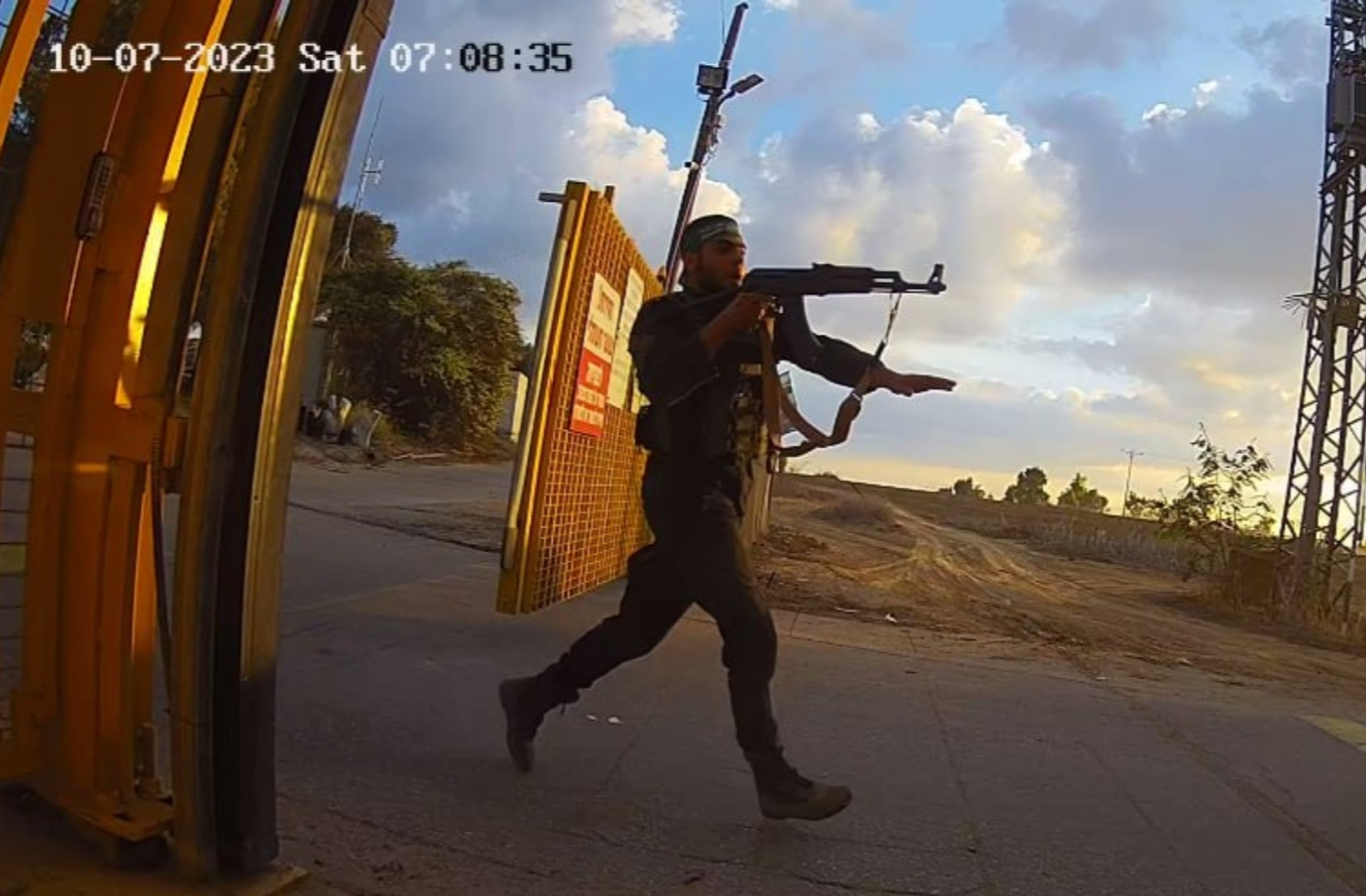Civilization
The Power of Martyrs

Intercepted messages obtained by the Wall Street Journal show that Yahya Sinwar, Hamas’ military leader in Gaza, is evading a ceasefire-and-hostage deal to prolong the war and escalate the Palestinian death toll. Sinwar sees advantage in martyrdom.
Let Israel make martyrs
“We have the Israelis right where we want them,” he said in a recent message to Hamas officials in Qatar, according to the Journal.
Sinwar was referring to the impossible scenario the Israeli military finds itself in, where the IDF must risk and often sacrifice the lives of Palestinian civilians to root out the Hamas terrorists who perpetrated the Oct. 7 massacre. Rock, Israel. Hard place, Gaza. It is precisely the situation Sinwar has dedicated his life to masterminding.
Sinwar was born in the Khan Yunis refugee camp 12 years after it was established to accommodate the thousands of Palestinians who either fled their homes or were expelled by Zionist militias in the 1948 war between Jews and Arabs that led to the creation of the state of Israel. Sinwar has linked his involvement with Hamas to his belief in the Palestinian right to armed struggle against what he considers an Israeli occupation – something instilled in him during his young life.
Imprisoned in Israel for over two decades for the abduction and murder of two Israeli soldiers and four Palestinians he suspected of being collaborators, Sinwar spent his sentence honoring Sun Tzu by getting to know his enemy. He studied Israeli history, the Zionist belief system and Jewish culture. He watched the local news to get a handle on Israeli society. He even learned Hebrew.
A bad bargain: prisoner exchange
Sinwar was one of 1,027 Palestinian prisoners eventually released in exchange for the Israeli soldier Gilad Shalit in 2011. It was in this moment Sinwar picked up on what he believed to be a great weakness of Israel: It will do anything to bring its people home. When Sinwar orchestrated Hamas’ terror attack against Israel on Oct. 7, he assumed that every one of the approximately 250 Israeli hostages taken would operate as an invaluable bargaining chip.
A day after Israeli soldiers entered the Gaza strip, Sinwar said Hamas was ready for an immediate deal to exchange its hostages for the release of all Palestinian prisoners held in Israel. But Sinwar misread how Israel would react to the rape, torture, murder, and kidnapping of nearly 1,500 of its civilians. Israeli Prime Minister Benjamin Netanyahu declared Israel was going to force the release of Israeli hostages through military pressure and destroy Hamas along the way.
Though he had not planned on it, Sinwar knew that a violent Israeli countercampaign could work in his favor. He recently likened the war in Gaza to a 7th-century battle in Karbala, Iraq, a monumental moment in Islamic history in which Hussein, the grandson of the prophet Mohammed, was tortured, murdered, and dismembered. Sinwar’s analogy gives the world a glimpse into his aims for the war.
“We have to move forward on the same path we started,” Sinwar reportedly wrote to fellow Hamas officials. “Or let it be a new Karbala.”
What is Karbala?
In the middle of Iraq, at the center of the city of Karbala, sits the Imam Hussein Mosque. Walk through ornate entrances to reach a vast prayer hall marking the spot where Hussein was beheaded during a 680 Umayyad empire succession crisis. His followers and family – a group of about 70 that included Hussein’s infant son – were also brutalized and murdered by the much larger army of the tyrannical ruler Yazid.
Shia Muslims trace their beliefs directly to the teachings of Mohammed’s grandson, so the Battle of Karbala holds a central place in Shia history, tradition, and theology. When Shia Muslims whip themselves bloody during the annual 10-day commemoration of the Battle of Karbala, they are honoring the events that took place there.
For both Shia and Sunni Muslims, Hussein’s suffering and death became a symbol of sacrifice in the struggle for right over wrong. Hussein’s Shrine, in the center of the great mosque, represents a great tribute to martyrdom in Islam.
A new Karbala.
Sinwar understands the power of martyrs in advancing a cause and has been willing to offer up Palestinian civilians to garner sympathy for his movement. In one message to Hamas leaders in Doha, Sinwar referenced civilian losses in now-liberated places such as Algeria, where hundreds of thousands of citizens died fighting for independence from France.
“Necessary sacrifices,” Sinwar called them.
Israeli Defense Forces argue that since Oct. 7, Hamas militants have planted themselves in Gaza’s residential areas to either hide behind or induce strikes on the Palestinian civilian population. The IDF claims that Hamas “uses the people of Gaza as human shields by embedding itself among them in schools, mosques and hospitals.”
The IDF has justified its bombings of civilian safe havens by insisting they double as Hamas’ hideouts. Netanyahu has repeatedly stated that he will not rest until the Israeli hostages have been retrieved and Hamas has been destroyed.
Many in the international community think the Israeli military has gone too far, however. The Office of the United Nations High Commissioner for Human Rights said there was concern Israel’s strikes have been “disproportionate attacks that could amount to war crimes.”
Support for Israel, vocal and positively one-note at first, has waned in the eight months since Oct. 7. It was President Biden who noted back on Dec. 11 that Israel must “be careful. The whole world’s public opinion can shift overnight. We can’t let that happen.”
Martyrs make the world pass foolish judgment
Shift it did. South Africa went to the International Court of Justice and accused Israel of genocide. The lead prosecutor at the International Criminal Court applied for arrest warrants of Netanyahu and Israeli Defense Minister Yoav Gallant, citing war crimes and crimes against humanity.
Voices in support of these actions cite the Gazan health ministry’s death toll, which now tops 37,000. The Gazan health ministry, like all of Gaza, is under the leadership of Hamas, and does not differentiate between combatants and civilians.
Meanwhile, there has been an outpouring of support worldwide for the Palestinian cause, as photos, videos, and personal accounts of the devastation in Gaza circulate on the Internet. The most headline-grabbing champions of Palestine were student protesters. American university-goers across the country sported keffiyehs – scarves that symbolize the Palestinian nationalist movement – and chanted “from the river to the sea,” a phrase used by Hamas in its 2017 charter which called for the eradication of Israel.
It is precisely these reactions that Israeli government spokesman Eylon Levy feared when he noted that “the stakes of the information war are the stakes of the war itself.”
Making headlines with blood
Sinwar and Hamas – while failing to paint themselves as the good guys – have pushed the Palestinian nationalist cause to the forefront of the international consciousness. Pro-Palestine marches have taken place in major cities all over the world, Israel has been re-framed as a settler colonial power, and even allies of Israel like President Biden have taken intense political hits.
“We make the headlines only with blood,” Sinwar said in a 2018 interview with the Italian journalist Yedioth Ahronoth. “No blood, no news.”
Palestine, confined now to just one small refugee camp in southern Gaza, bombarded by its big bad neighbor. David and Goliath. A new Karbala.
This article was originally published by RealClearPolitics and made available via RealClearWire.
Adeline Von Drehle is a rising senior at the University of Missouri studying American history. She will spend the coming year as an Oxford fellow at Corpus Christi College.
-

 Accountability2 days ago
Accountability2 days agoWaste of the Day: Principal Bought Lobster with School Funds
-

 Constitution2 days ago
Constitution2 days agoTrump, Canada, and the Constitutional Problem Beneath the Bridge
-

 Executive1 day ago
Executive1 day agoHow Relaxed COVID-Era Rules Fueled Minnesota’s Biggest Scam
-

 Civilization1 day ago
Civilization1 day agoThe End of Purple States and Competitive Districts
-

 Civilization5 days ago
Civilization5 days agoThe devil is in the details
-

 Executive4 days ago
Executive4 days agoTwo New Books Bash Covid Failures
-

 Civilization4 days ago
Civilization4 days agoThe Conundrum of President Donald J. Trump
-

 Executive14 hours ago
Executive14 hours agoWaste of the Day: Can You Hear Me Now?












